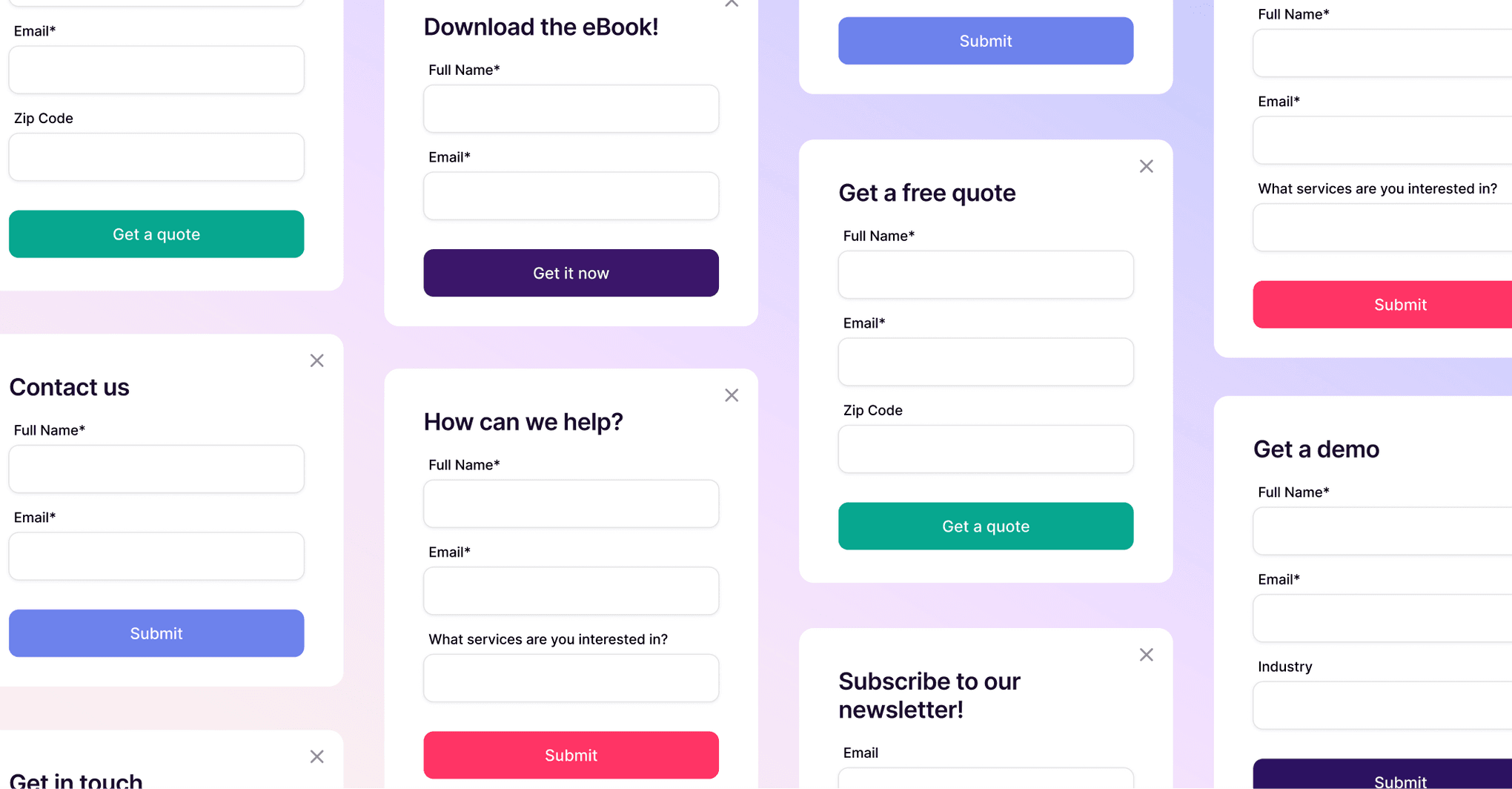Copper Staff
Contributors from members of the Copper team
You always felt like you could do anything.
Until the day when suddenly you couldn’t.
Burnout is a real and serious problem in the workplace. According to one study, 39% of adults in the U.S. experience stress related to their work. This made work the second most common cause of stress.
And the sad part is that people who are more likely to burn out are often those who are highly engaged in their work life. According to the Harvard Business Review, one out of every five workers is both highly engaged and at high risk of burnout.
Sales burnout is common because of the high-stress environment that we work in. If you feel like you’re constantly on the edge, it’s essential for you to understand what sales burnout is, what the signs are, and how to prevent it.
What is sales burnout?
Sales burnout has been described as frustration or disillusionment with your work which leads to physical, emotional, and mental exhaustion.
In other words, you may find yourself on the brink of burnout when your expectations haven’t been met in your job, or you’ve been experiencing a high level of stress for a long period of time.
When sales burnout hits, it’s brutal. Those who have been through it have reported extreme physical exhaustion to the point of losing consciousness or even hospitalization.
It can take weeks, if not months, to fully recover.
That’s why it’s essential to be attentive to signs that you’re about to burn out, and take action to prevent it.
Watch out for these telltale signs you’re hitting sales burnout.
1. Tasks that were once easy now feel like an impossible effort.
Sales involves many different tasks including prospecting, sending emails, cold calling, and taking meetings.
As a salesperson, you’re probably adept at each of these tasks, and usually through time and practice you’re able to get through the workday no sweat.
However, if you’re nearing sales burnout, you’ll find that even the simplest sales tasks feel overwhelming. You may feel like you lack both the energy and the motivation to complete tasks that were once easy.
2. Chronic fatigue hits, with insomnia.
An early sign of burnout is feeling tired all the time. Even on nights that you sleep well, you still feel like you’re dragging yourself through the day.
This intense fatigue can also be coupled with an inability to sleep at night, creating an endless cycle of exhaustion.
3. You can’t concentrate or remember important things.
Concentrating on the task at hand becomes next to impossible when you’re experiencing burnout. You easily become distracted by what’s going on around you, or even by your own thoughts.
Working memory is also affected by burnout. This means you forget the tasks you have on your to-do list, or have trouble remembering the steps involved in a multi-step task even as you’re doing it.
4. You’ve lost the joy you once had in your work.
We all expect a certain level of satisfaction in our job. If you usually feel accomplished and satisfied at work but lately feel empty when completing tasks during the day, you may be on the brink of burnout.
5. Everything and everyone annoys you.
Becoming easily irritated is another aspect of sales burnout. When your colleague asks you for a favor or your boss reminds you of an important deadline, it’s all you can do not to explode. Even minor annoyances at home can seem like personal affronts, and you find yourself losing your patience more often than normal.
If you see yourself experiencing these symptoms, it’s time to take action now. Don’t wait until burnout overtakes you to address these serious signs.
Take these 7 positive steps to combat sales burnout.
1. Set specific time away from work to disconnect.
Work never stays at the office anymore—and that nonstop connection is a prime contributor to sales burnout.
A recent SHRM study found that 44 % of U.S. employees feel burned out at work, and 45 % feel emotionally drained—evidence that chronic stress from always-on expectations is taking its toll.
Among remote and hybrid workers, 69 % report that tools like Slack, Teams, and email make it hard to fully unplug, contributing heavily to burnout .
Do late-night notifications cut into your family time? Are weekend client calls a regular occurrence? Those are red flags flashing sales burnout.
And it’s time to set boundaries.
For example, if having your phone on hand is a temptation to see if that prospect emailed you back, or if your colleague updated that information in the CRM, try turning the phone off at a set time every day. Or, leave it on airplane mode until you arrive at work in the morning.
When you’re starting to feel like the world is closing in on you, don’t be afraid to take a day off. Go away for a long weekend with your family. Take a hike (literally, of course).
Whatever you do, set a ‘no-work-allowed’ rule, and stick to it. If necessary, have your family monitor and remind you not to let your work creep into non-work times.
2. Make a reasonable plan for each workday.
When you start to feel overwhelmed at work, it’s time to make a plan.
Not only will setting a schedule and sticking to it help you be more productive, but it will help you fight negative feelings that knock you off your game.
According to the American Institute of Stress, the main cause of stress at work is the workload. So, be reasonable. Know yourself, and accept your limits.
To make your schedule, start by estimating the time you’ll spend on each task. Be realistic: don’t stuff in more tasks to your daily schedule than what you can really handle. (In other words, don’t try to squeeze in that extra meeting between the three calls you already have planned.)
Next, make sure to schedule time for short breaks throughout the day.
Think of it as the equivalent of a power nap (without the sleeping). This will help your mind to relax for a few minutes between work, allowing you to refresh, reset, and continue the day.
Finally, put your daily schedule in a place you can see it, or set reminders on your phone when it’s time to finish a task and take a break. This will help you be more committed to pacing yourself throughout the day.
3. Save energy for bigger or more important tasks.
Some sales tasks require more energy and focus than others.
Prospecting calls and important meetings can drain you even when you’re functioning at 100%. You need to be fully engaged, listening to your prospect’s concerns and preparing responses to their questions, as well as being enthusiastic and convincing.
If you’re close to burnout, energy and focus are two resources that you’re short on. This can make the idea of getting on the phone with a client seem absolutely overwhelming.
That’s why you need to store up energy for the tasks that drain your energy faster. Whenever possible, try to plan bigger tasks in the morning when you’re more alert.
If you can’t get around scheduling a big meeting in the afternoon, pace yourself throughout the day so that you still have the stamina and mental energy to be fully present in that meeting.
4. Seek out help and advice.
If you’ve been stressed out at work for weeks or months and feel like you’re about to hit your limit, remember you don’t have to go through this alone.
Sales burnout is a common problem, and it’s likely that someone else on your sales team, or maybe even your manager, have been through the exact same situation.
So reach out. Find a trusted colleague and let them know what you’re going through. They may have some sage advice that will help you get through this rough patch without burning out.
If you think you need professional help, don’t hesitate to seek it out. Therapy can do a world of good, and professional therapists who have treated other patients with burnout will be able to give you proven strategies that go beyond the tips we’re mentioning here.
5. Try stress management techniques.
When you feel your heart pounding, your mind racing, and a pit in your stomach, it’s time to stop, take a deep breath, and de-stress.
According to a survey done by the American Psychological Association, 62% of adults who exercise to reduce stress found it to be effective.
So when you’re feeling overwhelmed, don’t give up on regular exercise. Even if you can only manage to fit 20 minutes of cardio into your daily schedule, get your blood pumping and your body moving: it’s proven to reduce stress.
Another option is to practice breathing exercises. These kinds of deep breathing routines will help ground you and calm fraying nerves.
Planning time to engage in stress-reducing activities is essential to preventing burnout.
6. Make your tech stack work for you, not against you
Burnout doesn’t just come from working too much—it comes from working inefficiently. Jumping between tabs, digging through inboxes, updating spreadsheets, and chasing down notes from past calls… that kind of chaos drains your energy fast.
If you’re spending more time managing your work than actually doing it, your tools might be part of the problem.
That’s where getting the right tech stack makes a real difference.
The best tools don't just track tasks—they give you clarity. They help you see what’s coming up, what’s slipping through the cracks, and where your energy actually needs to go.
For many sales teams, a simple, visual CRM like Copper can be a game changer. It lets you visually see your pipelines to track leads, manage follow-ups, and even handle post-sale tasks without switching platforms or wrangling a dozen apps. And because it’s built to work seamlessly with Google Workspace, there’s less toggling and more focus.
The goal isn’t to over-automate or add complexity. It’s to create a system that supports your brain, your bandwidth, and your boundaries.
So if your current setup feels like it’s adding to your stress, not relieving it, that’s your cue to reassess. The right tools should make it easier to stay organized, stay connected, and stay well.
7. Pay attention to your physical, mental, and emotional needs.
When you’re getting close to burnout, your body is sending you all kinds of signals. But if you don’t pay attention to those signs, you could cause yourself serious harm.
If you feel the kind of intense fatigue that’s related to burnout, know when it’s time to stop and rest. Your body will require more sleep than normal, so force yourself to go to bed earlier in order to recharge fully.
Also, accept when the time comes to take days off and refresh yourself. If you need to spend the weekend in bed, don’t feel guilty.
More and more companies today are offering unlimited vacation days or personal days. Yet, according to Project: Time Off, the average American worker only takes 17.2 days off per year. This translates into 52% of employees leaving their vacation time unused.
In total, workers in the U.S. forfeited 212 million days of vacation time last year, totalling $62 billion in benefits that were lost.
So, why are people afraid of taking time off?
In the same study, 61% of employees who were afraid of looking replaceable were likely to leave their vacation time unused.
Other reasons for leaving vacation time on the table included a workload that was too heavy or lack of coverage at work.
But here’s the really crazy part: if you leave your vacation time unused thinking that will help you get ahead at work, you’re buying into an unreality.
Project: Time Off’s study also found that 52% of employees who used their vacation time to travel reported receiving a promotion at work in the last two years, and were more likely to get a bonus or even a raise!
There is nothing wrong with taking vacation time and getting away with your family. In fact, it will likely make you more successful at work and happier in life.
Get ahead of sales burnout before it overtakes you.
Sales burnout is serious, but knowing the signs and the steps to take will help you recover faster or even prevent burnout.
Remember: when you’re exhausted at the beginning of the week or day, you feel irritable and joyless at work or at home, and you struggle to concentrate, you could be on the verge of burnout.
Now is the time to take action and protect yourself. Set boundaries between your work life and your home life. Create a schedule that allows you to pace yourself and conserve energy. Confide in a trusted colleague, or seek professional help. Get plenty of exercise, and remove any necessary burdens.
Most importantly, know when it’s time to stop.
Your health is more important than your work. If you feel like you’re close to burnout, have the courage to take care of yourself first.
And when you’re ready to make work feel lighter again, Copper can help. Try Copper free for 14 days and give yourself a CRM that reduces busywork, creates clarity, and helps you end the day with energy left over.






